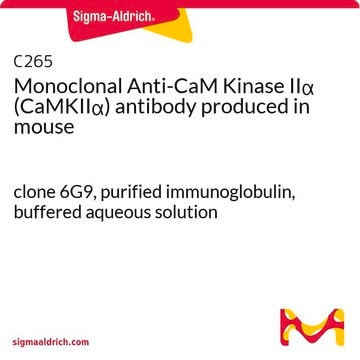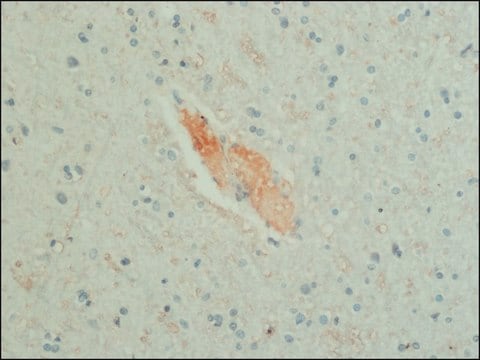05-532
Anti-CaM Kinase II Antibody, α subunit, clone 6G9
clone 6G9, Upstate®, from mouse
Synonym(s):
Anti-Anti-CAMKA, Anti-Anti-CaMKIINalpha, Anti-Anti-CaMKIIalpha, Anti-Anti-MRD53, Anti-Anti-MRT63
About This Item
Recommended Products
biological source
mouse
Quality Level
antibody form
purified immunoglobulin
antibody product type
primary antibodies
clone
6G9, monoclonal
species reactivity
rat, bovine
manufacturer/tradename
Upstate®
technique(s)
immunohistochemistry: suitable
western blot: suitable
isotype
IgG1
NCBI accession no.
UniProt accession no.
shipped in
dry ice
target post-translational modification
unmodified
Gene Information
human ... CAMK2A(815)
Specificity
Immunogen
Application
Signaling
GPCR, cAMP/cGMP & Calcium Signaling
Quality
Target description
Physical form
Storage and Stability
Legal Information
Disclaimer
Not finding the right product?
Try our Product Selector Tool.
recommended
Storage Class Code
10 - Combustible liquids
WGK
WGK 1
Certificates of Analysis (COA)
Search for Certificates of Analysis (COA) by entering the products Lot/Batch Number. Lot and Batch Numbers can be found on a product’s label following the words ‘Lot’ or ‘Batch’.
Already Own This Product?
Find documentation for the products that you have recently purchased in the Document Library.
Our team of scientists has experience in all areas of research including Life Science, Material Science, Chemical Synthesis, Chromatography, Analytical and many others.
Contact Technical Service








